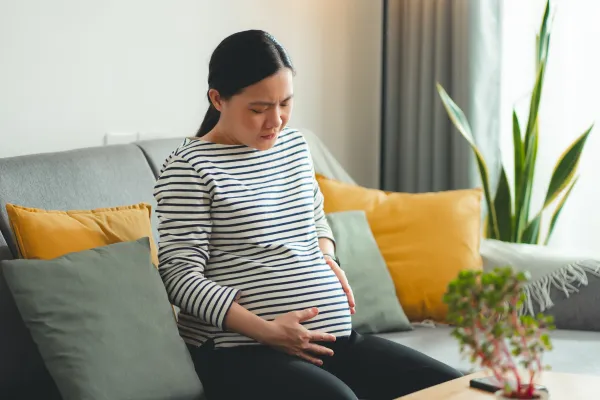Topics
Gastroenteritis, commonly referred to as the "stomach flu," is an illness marked by symptoms such as abdominal pain, diarrhoea, and vomiting. Although often self-limiting, proper management is essential to ensure a swift recovery and to prevent complications like dehydration. Here, we provide practical tips to help you navigate and manage this condition effectively.
Why is Hydration Crucial During Gastroenteritis?
Rapid fluid loss caused by diarrhoea and vomiting can lead to dehydration and electrolyte imbalances. Replenishing lost fluids promptly is key to recovery.
- Oral Rehydration Solutions (ORS): ORS is a recommended option as it restores electrolytes such as sodium and potassium quickly.
- Alternatives: Clear broths and electrolyte-rich drinks like coconut water can also help maintain hydration levels.
- Avoid: Drinks high in caffeine, sugar, or alcohol, as they may worsen dehydration.
What Foods Should You Eat During Gastroenteritis?
Adopting a bland and easily digestible diet can minimise stomach discomfort and promote recovery.
- Recommended Foods: Rice porridge, noodles, cooked carrots, pumpkin, soft apples, and bananas.
- Foods to Avoid: Greasy, spicy, high-fibre, or gas-producing foods such as fried items, chilli peppers, beans, and whole-grain bread.
- Tips: Opt for smaller, frequent meals and chew your food thoroughly.
Why is Rest Important for Recovery?
Adequate rest allows your body to conserve energy and focus on fighting the infection.
- Rest in bed and avoid strenuous activities.
- Prioritise sufficient sleep and try to maintain a relaxed state.
How Can Hygiene Practices Help Prevent Further Infections?
Maintaining proper hygiene is critical to avoid reinfection or spreading the illness to others.
- Hand Washing: Wash hands thoroughly before meals, after using the toilet, and after handling raw foods.
- Environment: Keep your surroundings clean and ensure adequate ventilation to reduce bacterial growth.
When Should You Seek Medical Attention?
While most cases of gastroenteritis resolve within a few days, certain symptoms may indicate the need for medical care:
- Severe or prolonged symptoms lasting more than three days.
- Blood in stool or vomit.
- Signs of severe dehydration, including dark urine, dry mouth, or dizziness.
FAQs About Gastroenteritis
What is the difference between gastroenteritis and food poisoning?
Gastroenteritis involves inflammation of the stomach and intestines, typically caused by viruses like norovirus or rotavirus. It can spread through contaminated water, food, or close contact with infected individuals. Food poisoning, however, results from consuming food contaminated with harmful bacteria, viruses, or toxins, often presenting more abruptly and severely.
Can gastroenteritis be treated with antibiotics?
Antibiotics are only effective against bacterial gastroenteritis. Viral cases cannot be treated with antibiotics, so self-medication without a proper diagnosis is discouraged.
How can gastroenteritis be prevented?
Prevention measures include frequent hand washing, maintaining good food hygiene, getting vaccinated, and avoiding contact with individuals who are ill.
Do I need to see a doctor for gastroenteritis?
Although gastroenteritis is often mild, seeking medical care is vital in cases of severe symptoms or complications, particularly for vulnerable groups such as infants, the elderly, or those with weakened immune systems.
Schedule an Appointment at Pantai Hospitals
Proper management of gastroenteritis can help ensure a faster recovery. Staying hydrated, eating a bland diet, and getting ample rest are foundational steps. However, if you experience severe symptoms such as high fever, bloody stools, or persistent vomiting, it is important to seek medical attention promptly.
At Pantai Hospitals, our dedicated team is here to support you. To book an appointment, contact us at our website or download the MyHealth360 application available on the Google Play Store and Apple App Store.













